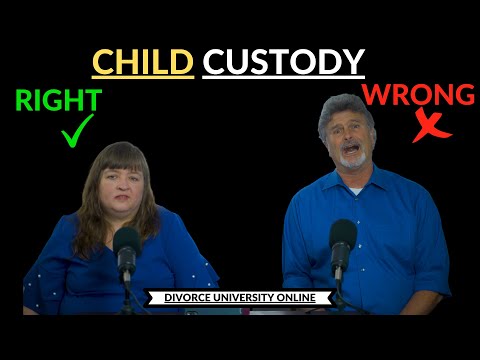
The following is an informative article on navigating child custody in Florida. It is important to note that this article is for informational purposes only and should not be taken as legal advice. Readers are encouraged to consult with qualified legal professionals or cross-reference with other sources for specific legal guidance.
Dear reader,
Welcome to this informative article on navigating child custody in the beautiful state of Florida. This topic is of utmost importance, as it pertains to the well-being and best interests of our precious children. Whether you are going through a divorce, separation, or facing other circumstances that require determining child custody, it is crucial to understand the complexities involved and the need for legal assistance.
📋 Content in this article
Child custody matters can be emotionally charged and legally intricate. That is why seeking legal guidance from professionals who specialize in family law is highly recommended. While this article aims to provide you with a solid foundation of knowledge, it does not replace the expertise and personalized advice of legal practitioners.
To help you navigate this complex journey, we will address key concepts related to child custody in Florida. From understanding the types of custody arrangements to exploring the factors considered by courts when making custody determinations, we will lay a solid groundwork for your understanding.
In Florida, child custody is referred to as “time-sharing” or “parental responsibility.” The state recognizes two main types of custody arrangements: shared parental responsibility and sole parental responsibility. Shared parental responsibility means that both parents are involved in making important decisions concerning their child’s life, such as education, healthcare, and religious upbringing. Sole parental responsibility, on the other hand, grants one parent the exclusive authority to make these decisions.
When determining child custody arrangements in Florida, the courts prioritize the best interests of the child above all else. To make this determination, judges consider various factors, such as each parent’s ability to provide a stable home environment, their willingness to facilitate a continuing relationship between the child and the other parent, and the child’s own preferences (depending on their age and maturity).
Understanding the Current Child Custody Law in Florida 2023
Understanding the Current Child Custody Law in Florida 2023: Navigating Child Custody in Florida: Understanding the Need for Legal Assistance
When it comes to child custody matters, it is crucial to have a clear understanding of the current child custody law in Florida. Custody disputes can be emotionally charged and complex, requiring careful consideration of various legal factors. Navigating through the legal intricacies can be overwhelming, which is why it is essential to seek professional legal assistance to ensure your rights and the best interests of your child are protected.
Here are some important points to help you understand the current child custody law in Florida:
1. Legal and Physical Custody: In Florida, child custody is divided into two types: legal custody and physical custody. Legal custody refers to the rights and responsibilities of making major decisions regarding the child’s well-being, such as education, healthcare, and religion. Physical custody, on the other hand, determines where the child will live and who will provide day-to-day care.
2. Best Interests of the Child: The primary consideration in child custody cases is the best interests of the child. The court will evaluate various factors to determine what arrangement would be most advantageous for the child’s overall well-being, including the child’s relationship with each parent, their physical and emotional health, and their preferences if they are mature enough to express them.
3. Types of Custody: In Florida, there are different types of custody arrangements that can be ordered by the court based on the specific circumstances of the case. These include:
Understanding the Factors Considered by Judges in Child Custody Cases in Florida
Navigating Child Custody in Florida: Understanding the Need for Legal Assistance
When it comes to child custody cases in Florida, it is crucial to have a clear understanding of the factors that judges consider in making their decisions. Child custody proceedings can be complex and emotionally challenging, which is why seeking legal assistance is often necessary to navigate the process successfully.
In Florida, the primary consideration in child custody cases is the best interest of the child. Judges evaluate various factors to determine what arrangement would be most beneficial for the child involved. These factors can include:
Title: Navigating Child Custody in Florida: Understanding the Need for Legal Assistance
Introduction:
Child custody cases can be emotionally challenging and legally complex. In the state of Florida, understanding the laws and regulations surrounding child custody is crucial for anyone going through a separation or divorce involving children. This article aims to provide an informative overview of child custody laws in Florida, emphasizing the importance of seeking legal assistance and staying current on this topic.
1. The Best Interests of the Child:
In Florida, child custody decisions are based on the principle of acting in the best interests of the child. The court considers various factors when determining custody arrangements, including but not limited to:
2. Types of Child Custody:
In Florida, there are two main types of child custody:
3. Parenting Plans:
Florida law requires parents to create a parenting plan that outlines how they will share responsibility for their child post-separation. Parenting plans typically include details about visitation schedules, decision-making authority, communication methods, and dispute resolution processes.
